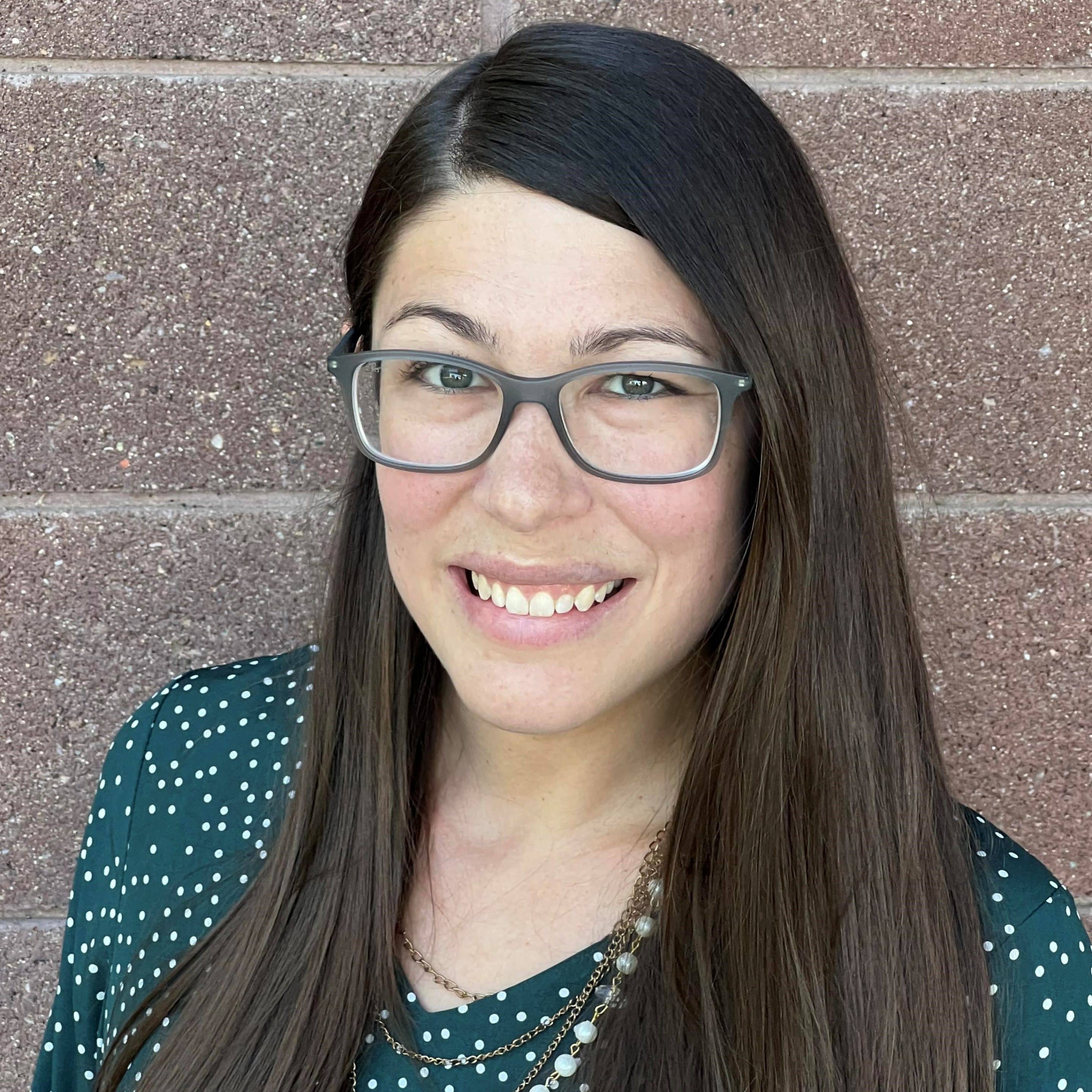The Future is Bright: Algebra Readiness Begins in Preschool
Maybe you feel like Dorothy, lost with no way home – unless someone can lend you a pair of ruby slippers!
But seriously, what can be done to ensure these students not only don’t fail Algebra, but that they experience real success throughout their math learning journey?
Check out this 24-minute video, featuring Made for Math CEO, Adrianne Meldrum, and researcher and author, David Geary. They discuss the impact dyscalculia research is having on best practices for identifying and supporting students with math learning disabilities from a very early age.
Table of Contents
Who is Dr. Geary?
Dr. David Geary is a cognitive development psychologist with an interest in mathematics and learning disabilities. This gives him a unique perspective on dyscalculia and the best ways to support learners with disabilities in math. Geary has authored numerous articles detailing research findings in developmental psychology, education, evolutionary biology, and medicine, as well as several full-length books, including Children’s Mathematical Development. Currently, he is wrapping up a long term study of Algebra readiness.
When asked why he chose this specific area of research, Dr. Geary comments, “it seemed an area that was ripe to explore.” Given that the research on dyscalculia is about 30 years behind similar research on dyslexia and reading disabilities, I would say you were right, Dr. Geary!
What’s in a Name?: The Difference Between Dyscalculia and MLDs
We know that there is plenty of confusion out there regarding the plethora of labels for students who are struggling with math learning. Dr. Geary helps to clarify where the terms “dyscalculia” and “math learning disability” originated.
Primarily used in the medical community, dyscalculia is a term for which a patient must undergo a neuropsychological evaluation to receive an official diagnosis. Math learning disability (or MLD) is a term from the education world and is typically diagnosed through the use of academic achievement tests. MLD is also more commonly recognized by educators and therefore more frequently used for things like IEPs (individualized education plans).
Bottom line: There is a tremendous amount of overlap and students with either diagnosis need and deserve the same type of interventions and support.
What are the Challenges In Studying Math Learning Disabilities?
Dr. Geary’s answer to this question seems to boil down to 2 main things: time and the unique characteristics each individual child brings to the research.
Each educational research study requires years of following a group of students through their math learning journey. Then researchers must evaluate the data they’ve collected and piece together the implications before presenting their findings to the community. This requires great patience and diligence.
Researchers have found that approximately 50% of students who struggle with a math learning disability also struggle with a disability in reading. This means that researchers and educators must work to understand clearly how each deficit is impacting the child’s learning. Additionally, students come from different home experiences which may affect their approach to learning. There are endless factors that have to be considered when attempting to identify the causes and implications of math learning disabilities.
3 Tips to Improve Math Retention
“Why doesn’t he remember that?”
“He knew how to do it yesterday.”
“I swear she knows her multiplication facts.”
Educators and parents have grappled with this phenomenon for years – why do some students struggle to remember basic number facts, even after repeated practice or demonstration of mastery?
This is a legitimate problem and it hits close to our hearts here at Made for Math. It is disheartening to witness a student struggle to retrieve information we know they know; or for them to retrieve the wrong information despite dedicated time and hard work.
Dr. Geary has some words of encouragement here, though!
Tip #1: Intervention studies have shown improvement with retention and math fact retrieval when students have “sufficient, organized practice”. This means, students must be given opportunities to work with similar math facts repeatedly and in an organized fashion, building on one set of facts after the other. This repetition allows for the areas of the brain in charge of memory formation to be “straightened out” so that students can hold on to and retrieve those facts.
Tip #2: Practice must be repeated over time. Just like cramming before a test does not improve test results, cramming math facts into a child will not lead to fluency. Dr. Geary recommends to “spread it out” and “give reminders” so that our students are not exposed to certain concepts or facts in isolation, but rather they have opportunities to practice with the same facts and concepts in various contexts over an extended period of time.
Tip #3: Math is a tapestry of patterns. Students need to be given opportunities to explore the connections between the various operations and the organization of the place value system. Dr. Geary advises that educators interweave skills, for example, subtraction and division, together. Not only will this help students to recognize the relationship between two operations, but it will require them to pay closer attention–which aids in memory formation.
2 Surprising Predictors of Algebra Readiness
Dr. Geary’s most recent research study followed 2,000 sixth grade students. His team assessed this group for basic arithmetic skills and overall attitude towards learning mathematics. They continued to work with smaller subgroups for an additional three years until the conclusion of their ninth-grade school year. The study ended with an assessment of algebraic skills, as the goal was to predict early risk of failing in higher levels of mathematics, and specifically algebraic concepts.
The implications of this study are not entirely known yet, but Dr. Geary does give us a peek at what was learned. He claims two main predictors stood out in the study.
1. Understanding of fractions: Okay this one isn’t all that surprising, but students with a strong foundation in fractional concepts performed better in Algebra. These students developed a strong understanding of magnitude while learning fractions (and probably even earlier in their math education) and were able to apply these skills in algebraic learning.
Interestingly, Dr. Geary also mentions an earlier study of preschool children which pointed to an understanding of numeracy and magnitude as a main predictor of long term math success. There seems to be a theme here…
2. Understanding equations written in non-standard format: The students who can see that the “equal sign just means solve the problem” are much more prepared for the world of Algebra. Dr. Geary explains that many students were terribly unfamiliar with problems presented in a non-standard format, such as a + ___ = b, where the unknown appears to the left of the equal sign instead of to the right.
This indicates that students need to be exposed to algebraic thinking very early on. They need to have opportunities to explore equations written in a variety of formats.
What’s Next for Dr. Geary? Current and Future Dyscalculia Research Plans
As he wraps up his study on Algebra performance in 9th graders, Dr. Geary is eager to take this research back to the very beginning–preschool.
In a previous study, Dr. Geary learned that the biggest long term indicator of math readiness in preschool age children is a conceptual understanding of the meaning of number words. For example, recognizing that the word “four” means 4 of some object. He stated that there is a wide variance in 3 and 4 year olds’ grasp on what a quantity actually means.
Using these findings as a sort of box spring, Dr. Geary’s next study will follow preschool children again. This time he hopes to learn about the effects of children’s home lives on their math readiness. He wants to study the ways parents talk about numbers and magnitude with their children at home. Is it possible that students who have opportunities to explore numeracy and magnitude before even entering a classroom will perform better in the long run?
He also plans to study the classrooms these young students are entering – what the environment is like, what the teachers are doing, and how engaged they are. “We’re going to be looking at everything. The kids’ development, the home, the parents’ math skills, what happens in the classrooms, and try to integrate it all together.”
Dr. Geary hopes to discover what causes that significant variation he previously found in young children’s understanding of number words and magnitudes. The goal of this study will be to identify the earliest predictors of long term math performance and what specifically influences the development of those predictor skills.
A follow-up study would be to analyze the effectiveness of interventions for those specific skills.
Dr. Geary expresses hope that a screener will be developed from these studies which would allow educators to catch students who are likely to struggle in math while they are very young, preschoolers even. Then educators would be able to intervene with the most effective strategies very early on, essentially preparing children for Algebra while they are still in preschool.
What’s Your Role? The Best Ways to Support Dr. Geary and Other Researchers
Research is important. The work Dr. Geary is doing should directly impact the decisions we are making as parents and educators of students who are struggling with math learning. If you want to change the way we help our children, here are the 2 most important steps you can take:
- Support researchers. Help them continue to receive the funding and support they need by supporting places like the National Institutes of Health and the National Science Foundation.
- Most importantly, don’t get stuck in the past. We all know that it often takes many years for the research to make it into the classroom where it can have an actual impact. Let’s end this trend. Stay up to date by visiting sites like the MU Math Study webpage and reviewing the articles Dr. Geary and his peers publish. The more aware we are of what the research is revealing, the better practices we can implement for our kids. Dr. Geary encourages parents and educators to “stay aware of this work because a lot of it’s been basic, but there are a lot of interventions that are now being developed – from preschool all the way through fractions and word problems and so forth.” The work that is being done could give us a picture of what the future looks like for Math education.
Keep moving forward. Take advantage of the opportunity to open new doors for students who may not otherwise experience success. Stay up to date on the research and apply the best practices and interventions available.
If you take one thing from this interview with Dr. Geary, let it be the hope of a brighter tomorrow. For educators and parents, research like Dr. Geary’s can be like a yellow brick road, leading us towards solutions for students with learning disabilities.
Would you like your child to work with professionals who are up-to-date on the latest math research? Check out our one-one services here.
👀 Watch More Episodes of Unlocking Dyscalculia 👀
Learn from dyscalculia experts in the field in this 16-episode series.
MFM Authors

Cassie Gibson
Multisensory Math Specialist
Cassie is a book-loving, knowledge-hungry, fun-seeking teacher who just wants to share the joys of learning with each and every student she has the privilege to meet! While teaching students here at MFM, she also writes great content to help parents just like you.







